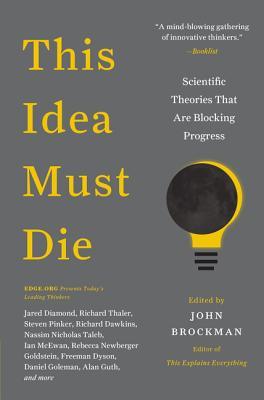Kate Mills: Only "Scientists" Can Do Science
What we think we know about ourselves through science could be skewed, since the majority of psychology studies sample individuals who do not represent the population on a whole. These WEIRD (Western, Educated, Industrialized, Rich, Democratic) samples make up the majority of non-clinical neuroimaging studies as well. Increased awareness of this bias has prompted researchers to actively seek out more representative samples. However, there is less discussion or awareness around the potential biases introduced by WEIRD scientists.
If most funded and published scientific research is conducted by a sample of individuals that have been trained to be successful in academia, then we are potentially biasing scientific questions and interpretations. Individuals who might not fit into an academic mould, but nevertheless are curious to know the world through the scientific method, face many barriers. Crowd funded projects (and even scientists) are beginning to receive recognition from fellow scientists dependent on dwindling numbers of grants and academic positions. However, certain scientific experiments are more difficult, if not impossible, to conduct without institutional support, e.g., studies involving human participants. Community-supported checks and balances remain essential for scientific projects, but perhaps they too can become unbound from traditional academic settings.
Notes:
Folksonomies: citizen science
Taxonomies:
/science (0.361594)
/law, govt and politics/legal issues/human rights (0.238893)
/business and industrial/business operations/business plans (0.175698)
Keywords:
non-clinical neuroimaging studies (0.950435 (neutral:0.000000)), traditional academic settings (0.810009 (neutral:0.000000)), certain scientific experiments (0.802809 (negative:-0.349054)), Kate Mills (0.629520 (negative:-0.530246)), potential biases (0.615063 (negative:-0.432381)), psychology studies (0.595007 (neutral:0.000000)), Community-supported checks (0.593717 (positive:0.713672)), WEIRD scientists (0.575403 (negative:-0.432381)), representative samples (0.562479 (negative:-0.588809)), academic mould (0.556955 (neutral:0.000000)), scientific research (0.547792 (positive:0.212105)), scientific questions (0.543670 (neutral:0.000000)), human participants (0.536380 (positive:0.312543)), scientific method (0.535430 (neutral:0.000000)), fellow scientists (0.533201 (neutral:0.000000)), institutional support (0.532259 (neutral:0.000000)), academic positions (0.522823 (neutral:0.000000)), scientific projects (0.514876 (positive:0.713672)), majority (0.409045 (neutral:0.000000)), individuals (0.391462 (positive:0.212105)), awareness (0.334636 (negative:-0.510595)), science (0.331972 (neutral:0.000000)), Industrialized (0.309204 (neutral:0.000000)), academia (0.278363 (positive:0.212105)), Crowd (0.278124 (neutral:0.000000)), balances (0.276073 (positive:0.713672)), barriers (0.273643 (negative:-0.460322)), population (0.272922 (neutral:0.000000)), interpretations (0.272329 (neutral:0.000000))
Entities:
Kate Mills:Person (0.986430 (negative:-0.530246)), representative:JobTitle (0.807917 (negative:-0.588809))
Concepts:
Science (0.953475): dbpedia | freebase | opencyc
Scientific method (0.933747): dbpedia | freebase
Research (0.741718): dbpedia | freebase | opencyc
Pseudoscience (0.680758): dbpedia | freebase
Theory (0.648870): dbpedia | freebase
Peer review (0.601520): dbpedia | freebase
Bias (0.563952): dbpedia | freebase





